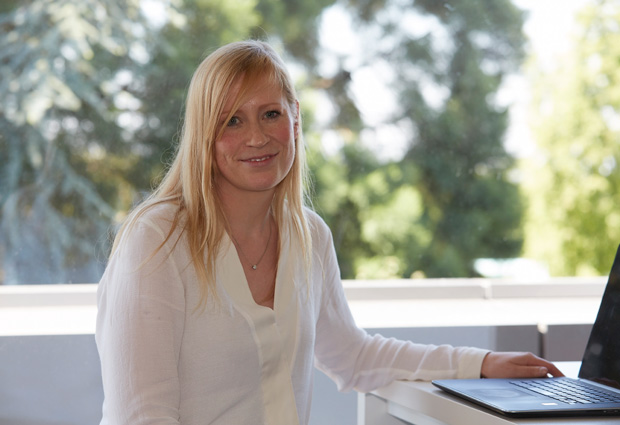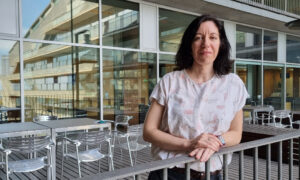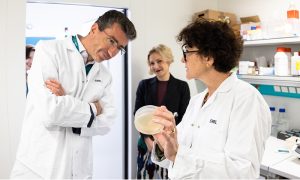
Melina Schuh receives EMBO Gold Medal
EMBL alumna Melina Schuh recognised for excellence in science

By Annika Grandison and Edward Dadswell
Melina Schuh, EMBL alumna and a Director at the Max Planck Institute for Biophysical Chemistry in Göttingen, Germany, has received an EMBO Gold Medal. The award is given annually to young scientists for outstanding contributions to the life sciences in Europe.
“It is an absolute honour,” says Schuh. “But the award should really go to the many outstanding postdocs and students I have had the pleasure to work with. None of our work would have been possible without their enthusiasm and dedication.”
Schuh’s research focuses on mammalian egg cells, or oocytes. Her aim is to understand how they develop and why they frequently carry an incorrect number of chromosomes – a condition known as aneuploidy. This is a leading cause of pregnancy loss and of genetic disorders such as Down syndrome. She is also investigating why there is a dramatic decline in the quality of oocytes later in life. “Aneuploidy in eggs increases as women get older,” says Schuh. “This also explains why it becomes more and more difficult for women to conceive as they approach their early forties. We want to understand the mechanisms behind the decline in egg quality with advancing maternal age.”
It is an absolute honour
Schuh’s path as a researcher was influenced by her studies at the University of Bayreuth, where she enjoyed using quantitative microscopy to tackle biological problems. “I especially like microscopy as an approach because it can be used to observe live and in great detail how a cell works,” she explains. She applied for a PhD in Jan Ellenberg’s group at EMBL, knowing that Ellenberg was a pioneer in live-cell imaging.
During her time in the Ellenberg group, Schuh developed microscopy methods for imaging live oocytes from mice. Later, at the MRC Laboratory of Molecular Biology in Cambridge, UK, she extended this work to human oocytes.
Schuh continues her research as a group leader at the Max Planck Institute. In the long term, she hopes her work will help people facing problems with infertility.


